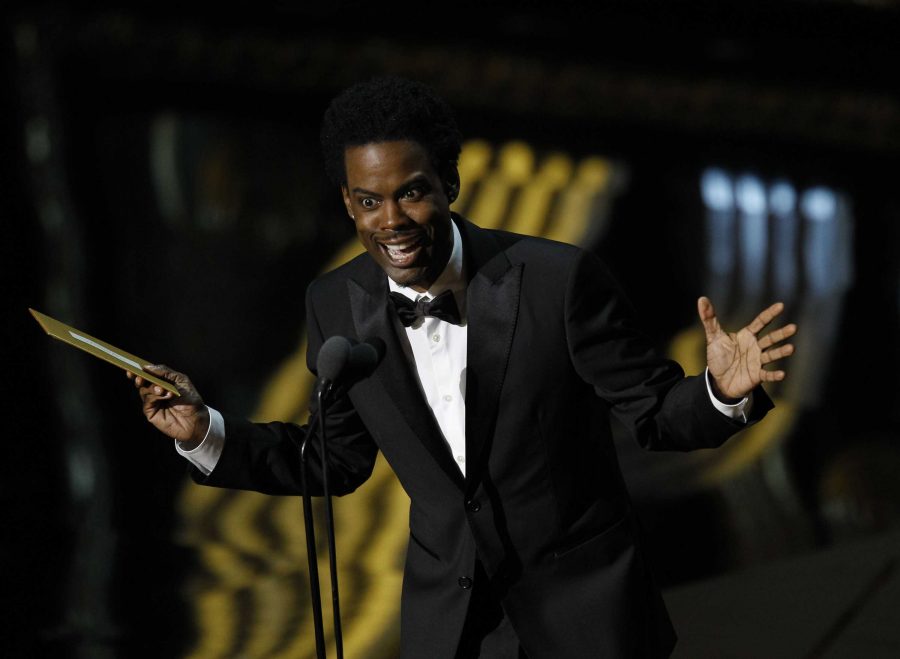Every year in Hollywood’s Dolby Theater, movie stars celebrate themselves together — but now they need to protest together.
For the second year in a row, the Oscars caused controversy by not nominating a single actor of color in any of its four acting categories, causing Will Smith — an unnominated Oscar hopeful for his role in “Concussion” — Jada Pinkett Smith and Spike Lee to boycott this year’s ceremony.
As a result, the Academy of Motion Picture Arts and Sciences President Cheryl Boone Isaacs laid out aggressive plans to double the number of minorities and women in the Academy — and therefore ballot voters — by 2020, earlier this month.
But reform requires more than a boycott and personnel change. Like our politics, we need an campaigning overhaul from all of Hollywood.
Much like presidential campaigning, a film “campaigning” — such as TV appearances and magazine agreements — helps get it more attention from judges, and increases the odds they will see it. Corresponding Academy branch members decide each Oscar ballot’s nominations. For example, the director branch determines the directors’ nominees, but the entire Academy, which is notoriously white, votes on the winners themselves.
An Academy that better represents the nation’s composition is a step in the right direction. In light of Fox Searchlight purchasing Sundance drama of slave/rebel Nat Turner for an historic $17.5 million and Boone Isaacs’ call for the Academy to double the number of women and minorities in the Academy by 2020, positive change is entirely possible and may already be happening.
But sadly, unless studios themselves work on giving opportunities to deserving minorities and women, this change can only do so much. As Viola Davis said so eloquently when she became the first African-American actress to win an Emmy for Best Actress in a Drama Series in the fall, the issue for minorities and women has never been a lack of talent, but a lack of opportunity.
It’s encouraging to see black artists boycotting this year’s Oscars, which forces us all to keep discussing the issue at hand.
It’s also encouraging, and vital, that artists of color aren’t the only ones to speak up. George Clooney, Mark Ruffalo, Reese Witherspoon and Danny DeVito have publicly spoken in support of their minority colleagues in frustration with the way the Academy has operated.
On the Jan. 23 episode of Saturday Night Live — which has been similarly criticized for its lack of diversity — poked fun at the Oscars’ notoriety. In a sketch that mirrored the real Oscars’ white homogeneity, two-bit white roles, such as “unseen voice on phone,” received nominees over leading black roles. The skit parodied “Beasts of No Nation,” “Creed” and “Straight Outta Compton,” with each film’s portrayed black star glaring from behind the white nominees.
It’s one thing to joke and talk about Hollywood’s race problem, but it needs confrontation to really fix it.
Which is why this year’s Oscars holds a lot of weight not just for Hollywood, but for individuals as well. This could be one of the biggest moments of host Chris Rock’s career, as he is expected to seize the ceremony’s highest platform to air his and his colleagues’ grievances. Rock has said he’s changed his monologue material to refer more to the lack of black artists at the show.
With the boycott’s few participants, we need more individual speeches to echo Rock’s message.
Best Actor favorite Leonardo Dicaprio is an obvious czar at the moment, but supporting actor nominee Mark Rylance and Best Director nominee Alejandro González Iñánarritu, who spoke on Latino immigration during his acceptance speech last year, are other powerful examples that could help bring meaningful change.
At the Producers Guild Awards on Jan. 23, the white producers of “The Big Short,” a frontrunner for Best Picture and whose cast is also predominantly white, spoke about a need for more diversity during their acceptance speech.
But producers and screenwriters of white-washed movies need to look within and acknowledge where they could have attacked the problem outside of the ceremony.
On the stage, it’s easy for anyone to call for boycotting and industry-wide equality, but they also risk of being opportunistic or setting up embarrassing blunders when results don’t materialize.
As “Creed’s” lone nominee, a movie written and directed by the African-American Ryan Coogler and featuring a mostly black cast, Sylvester Stallone’s case has an unusual position amongst this year’s white nominees.
Stallone, when winning the Golden Globe for Best Supporting Actor earlier this year, forgot to thank his black coworkers during his speech. He did get back on stage during the commercial break to thank them though, and mentioned them first when accepting the Critics Choice award a week later.
Stallone could get an opportunity to rectify this on a larger stage, as he is the frontrunner for Best Supporting Actor.
But it will be up to Rock to keep the discussion alive during the night Hollywood celebrates itself. While some wanted Rock to join the boycott, him electing to stay is a more powerful move. If anyone has the courage and eloquence to force Hollywood to confront racism during its annual party, it’s him.
His guest column in the Hollywood Reporter a year ago, a composed yet scathing breakdown of the racism in the industry, still rings true today. Rock has never been shy to take on challenging complex issues, detractors be damned, and he and the rest of Hollywood will get the opportunity to do so Feb. 28.


